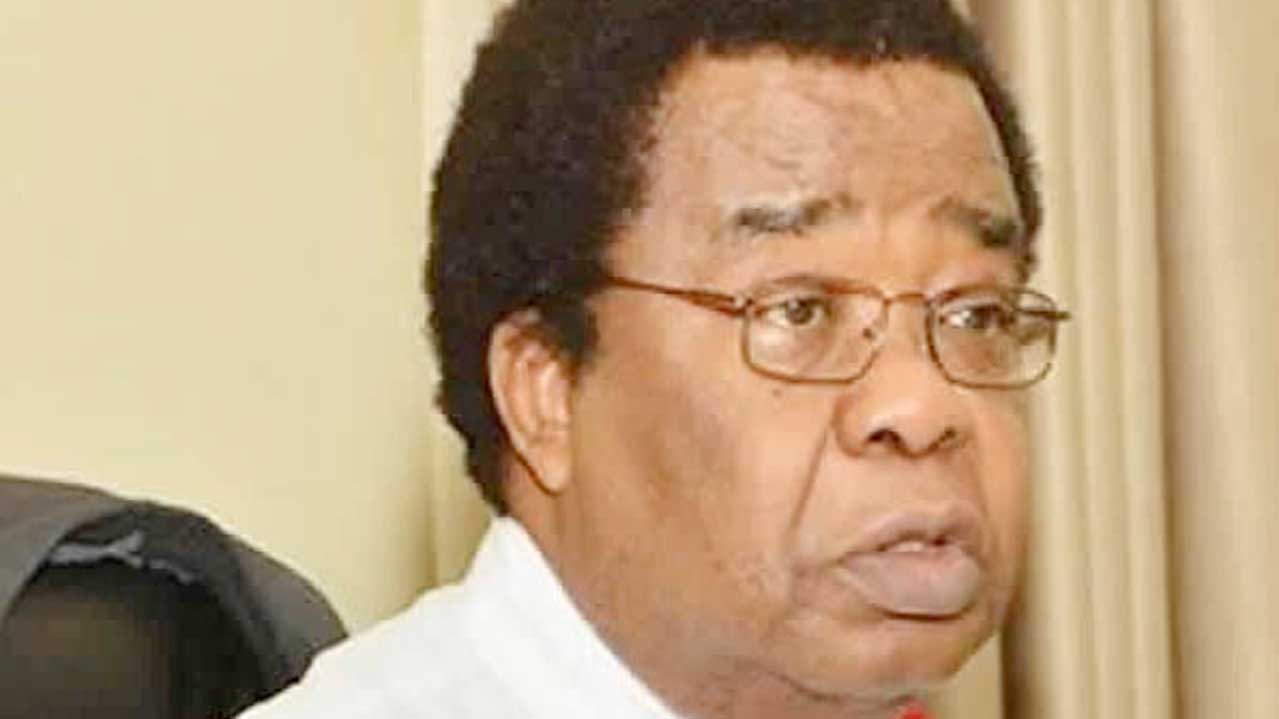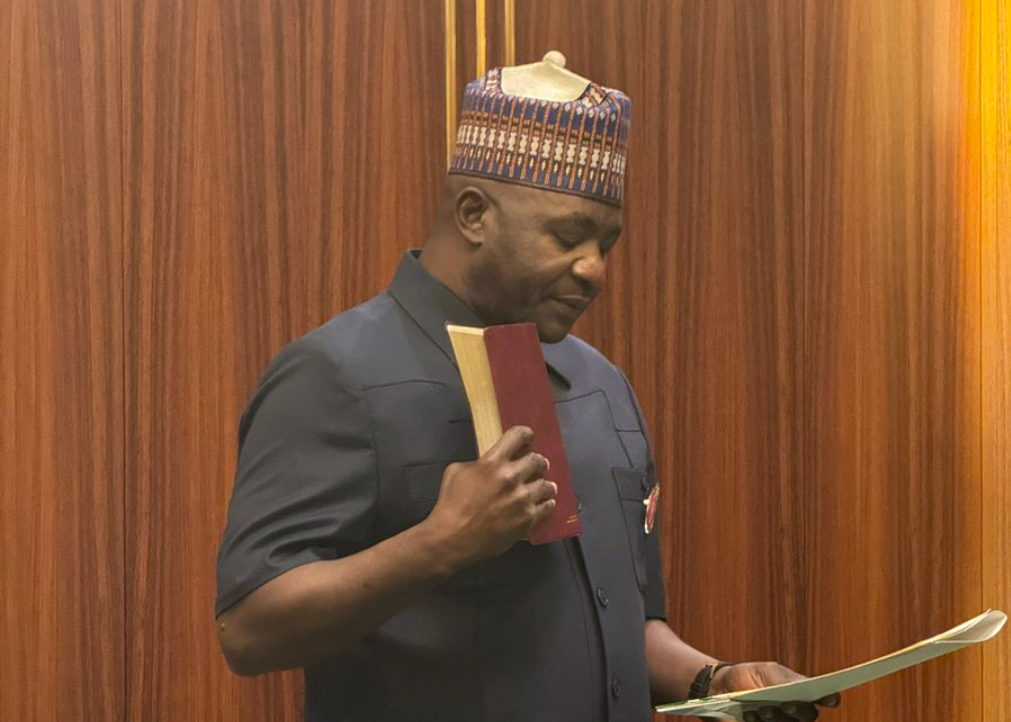
In Nigeria today, governors of 27 of the 36 states in the federation are unable to pay the salaries of their workers in ministries and agencies. President Muhammadu Buhari described the situation a national disgrace. I agree with him. Some of the governors are holding the salaries of their workers for up to seven months.
When most of these governors talk to those they have not paid for that long, they frown as if the workers are irritants and nonentities. This article advocates these executive governors of states who cannot pay the salaries of the workers in their ministries and government agencies and fund education and training well, should resign. They should be told to resign since they have lost the sense of social justice and would not resign on their own.
Executive governors unable to pay the salaries of workers should resign because they lack the love, humanness and wisdom to carry out true development projects in their states. They are blindfolded by excessive greed. The spirit of God cannot stay with such persons because they are agents of the Devil serving money as their gods. Nigeria is at its lowest ebb. It is very sad that our religious leaders and others have not spoken against this wicked and inhuman practice of our governors.
It is a shame. It is appalling. God promised to punish those who withhold the wages of those who work for them? How could this happen in a nation that is boasting of having experienced unbroken 17-year of democracy? What type of democracy are we talking about? What roles are the State and National Assemblies serving in Nigeria’s development? Which type of laws do they claim to be making?
The issue at stake is not how much money is available to the governors. It is a matter of a malady. The governors take their salaries and claim security votes but withhold workers’ salaries. Injustice! Wickedness! A leader who pays himself and tell his workers that there is no money to pay salaries cannot embark on projects that would lead to the development of his state. Nigeria in its downward trend has reached a dangerous position. Today, Nigerian leaders, men and women, embezzle billions of Naira and Dollars as a tradition. Avarice is killing Nigeria. This is why governors are not paying salaries. No greedy person can be a visionary leader. Nigeria cannot survive without visionary leaders
Kenney (2000), on reflecting on the Wisdom Words of Thomas Aquinas, observed that the mind directs human actions by four acts. They are: 1) Understanding, this means, to have a correct idea of the goal of life which in turn determines the principle of action. When understanding is impeded, we have blindness of the mind. 2) Counsel, the mind through proper counsel directs good and appropriate action. When this is impeded by anything, greed, for example, we display carelessness. 3) Judgment about what to do, when this is impeded, we act without thinking, which is rashness. 4) Prompting to act at the appropriate time, appropriate action and appropriate time prompting is import to life. When this is not there, we demonstrate inconsistency. This disturbs the mind in two ways. First, when pleasure is sought as an end to itself, we display self-love and hatred for God. Second, when a person has excessive desire for the present world, he demonstrates despair for the future world, which the person holds in contempt.
Nigerian leaders have long been demonstrating a blindness of the mind by implementing programmes that lack growth elements. They have always refused good counsel, determined to implement expensive white elephant programmes which enable them to award inflated contracts and get kick-backs. They have carelessly neglected developing our people and nation building our nation.
Nigerian leaders have always had poor judgment about what to do, so they act without thinking. Virtually all Nigerian leaders believe that all that development entails is to erect complex infrastructure through inflated contracts so as to lure the philanthropic foreign investors to invest while Nigerians do nothing. The Nigerian leader has always demonstrated inconsistency because he is corrupt, he lacks the grace of discernment and he/she does not get the prompting for the appropriate action at the appropriate time.
The World Bank estimates that the construction of one kilometre of road should cost N238million in Nigeria. But Nigerian governments claim over N1billion for constructing one kilometre of road. This means that for every kilometre of road constructed by our roads and bridges-loving executive governors, they have at least N700 million to embezzle. This is the attraction for the construction of the perpetually bad roads. Building bridges, railways, and electricity generating plants and transmission lines are by far more lucrative for the greedy Nigerian leader.
Nigerian leaders know that most Nigerians are too ignorant and lazy to find out how their leaders are feeding fat on the wealth of the nation while the ordinary people languish in poverty. Consider the related concept of ‘ghost workers.’ Who is a ghost worker? The Guardian newspaper of June 25, 2016, p.6, carried a news item captioned, “FG, 10 states spend N538b on 157,877 ghost workers.” If President Muhammadu Buhari is probing corruption in Nigeria, he must probe the concept of ghost workers and tell Nigerians how some ghosts get into government payrolls and earn money.
The DAILY SUN newspaper, Friday, April, 28, 2014, p.59, also carried a news item captioned, “FG spent N25b on workers’ salaries in April, says AGF.” Under the caption, the Accountant General of the Federation, John Otunla, announced that the Federal Government of Nigeria spent N25 billion paying 254,000 employees in its Ministries, Departments and Agencies in April 2014. In The Guardian newspaper of June 24, 2016, p.4 there was a news item caption, “Government may borrow N165b to pay civil servants.” Under the caption, the Minister of Finance, Kemi Adeosun, said that the Federal Government is now faced with the challenge of borrowing to meet the monthly wage bill of N165 billion.
Our governments are not carrying out projects that bring about development, hence the nation is stagnating and hence they are facing the problems of paying workers and funding real development projects. Japan does not have oil wells. Germany does not have oil and gas deposits. The hope of Nigeria lies in our governors resigning from office once they cannot manage the economy well, pay workers’ salaries and invest in education and training.
Ogbimi is of Obafemi Awolowo University, Ile-Ife. can be reached via 08037062056; e-mail:[email protected]






